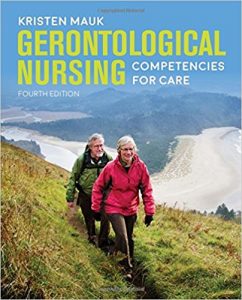It is no surprise that baby boomers are entering the elderhood phase of their lives, which often means seeking medical care or advice for themselves or for their aged parents. The role of the Adult-Gerontology Nurse Practitioner (AGNP) is quickly becoming more relevant as America’s older population is expected to grow from 15% to 24% over the next 30 years. With life expectancy increasing from 68 years old in 1950 to 79 years in 2013, the expertise of the AGNP is more valuable than ever as healthcare faces this “Silver Tsunami.”
AGNPs are trained to provide care across the continuum of adulthood from young adults to the frail elderly as a reflection to changes made to the national certification exams in 2013, which combined the adult and gerontological specialties into one certification. However, many AGNPs and still-certified Gerontological NPs choose to specialize in the elderly population, (those older than 65) with specific focus areas or competencies related to the aging adult.
Nurse practitioners who specialize in adult and gerontological care can further their specialization by choosing a primary care or acute care concentration. No matter the setting, the AGNP provides multi-disciplinary care to treat the entire individual, not just their health concerns. As there are many facets of aging to consider, the AGNP addresses the physical, psychological and social aspects of aging not only to treat conditions, but to educate patients and the community on preserving function and preventing injury or further decline. Depending on the state in which they practice, AGNPs typically work with a supervising physician under standardized procedures in order to assess, diagnose, treat and prescribe medications.
Many studies have shown that patients are very happy to receive care from nurse practitioners in a variety of settings, including palliative care. Education regarding options for end-of-life care is typically managed by AGNPs in the acute care, post-acute care, home care, long-term care and primary care settings. As educating patients and populations is a cornerstone of the nursing profession, advanced-practice nurses such as AGNPs offer expert knowledge to guide patients and their families through the challenging maze of end-of-life planning. The role of the Adult-Gerontological Nurse Practitioner has never been more valid or necessary as the U.S. begins to feel the surge of the silver tsunami.
Catherine Burger, BSN, MSOL, RN is a board-certified nurse executive leader and contributing writer for www.registerednursing.org.

